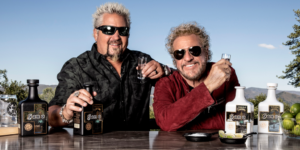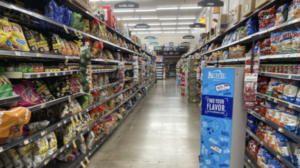Gatorade is in need of some refreshment
Gatorade sales have been struggling due to a consumer preference for water and a move away from sugary drinks. A 32-ounce bottle of Gatorade’s tangerine flavor has 52 grams of sugar. At a time where sugar is public enemy number one, this is not helping the sports drink.
There also is increased competition from new startups looking to meet the demand for a less processed post-workout beverage. Body Amour, a newcomer to the space with support from Kobe Bryant and Dr Pepper Snapple, is marketed as having natural flavors and sweeteners, and no preservatives. While Gatorade’s sales slipped in 2017, Body Armor’s doubled. Interestingly, a 16-ounce bottle of Body Armor has 36 grams of sugar, making it a higher-sugar per calorie drink than Gatorade. It could be the upstart is getting the benefit of the doubt because of its reluctance to use artificial colors.
Another problem for sports drinks is some consumers are turning away from them in favor of a snack bar after a workout. There has been a greater demand for replenishing not just electrolytes lost during a sweat session, but also consuming the right combination of protein and carbohydrates, which Gatorade can’t deliver with its signature drink.
These influences leave both PepsiCo and Powerade, the No. 2 player in the space owned by Coca-Cola, in a tough spot. Creating new varieties of their sports drinks with cleaner labels and perhaps dropping some of the iconic bright colors could be a start. However, it may be tricky to get consumers to see a new product with their signature brand on it as anything other than a highly processed, sugary drink.
PepsiCo launched an organic version of Gatorade in 2016, made with organic cane sugar and no artificial colors. However, sales have been disappointing. In 2016, retail sales of Gatorade Organic totaled roughly $20 million, according to Nielsen statistics presented by the Wall Street Journal. Compare that to the $7 billion that came from sales of all Gatorade drinks, and the lack of consumer interest becomes a bit more clear.
It could be a case of “too little, too late” on the part of PepsiCo in introducing the organic variety. Still, the question remains as to how they can right the ship for a key brand. Gatorade represents about 20% of PepsiCo’s North American drink volume, so this slip in sales isn’t something the company can just brush off.
PepsiCo and Coca-Cola now face something of a predicament. Distant third-place upstart Body Armor is thriving on promises of no artificial sweeteners or colors, but Gatorade Organic with the same message isn’t getting the same reaction. It may be time to try out an entirely new product that consumers won’t compare to the signature sports drinks.







